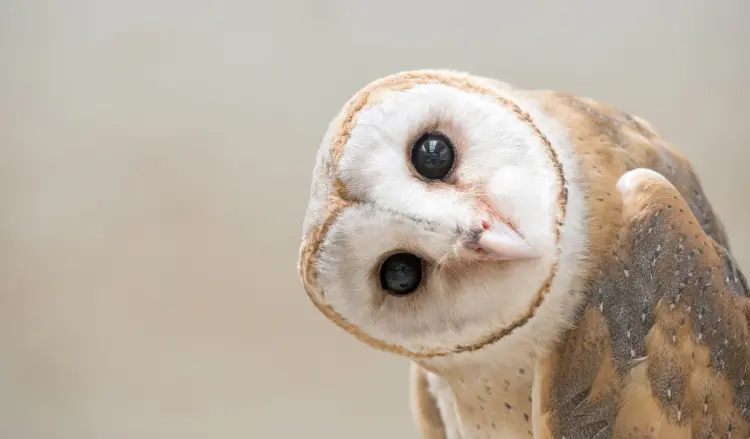The sad tale of Thunderbird the Sea Turtle
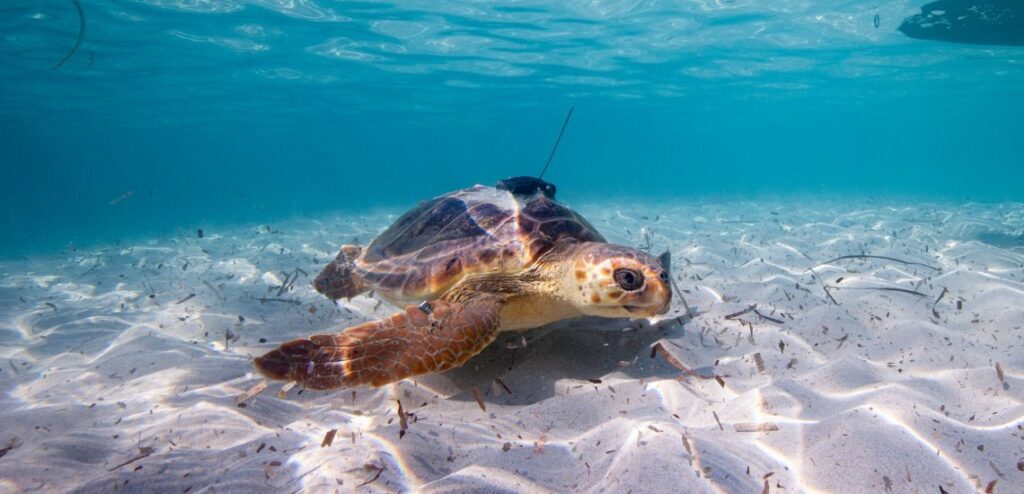
An epic trip of 6,000 km, from Spain to Senegal, of a loggerhead turtle reveals some of the major threats to sea turtles. Six out of the seven sea turtles are classified as Vulnerable, Endangered or Critically Endangered on the IUCN Red List.
By Lewis Kihumba
World Sea Turtle Day is celebrated on 16th June every year to highlight and raise awareness about sea turtles, and the threats facing them. Across the world, sea turtles are increasingly threatened, with six out of the seven sea turtles, now classified as Vulnerable, Endangered or Critically Endangered on the International Union for the Conservation of Nature (IUCN) Red List.
Leading threats include pollution, poaching, and accidental catches or bycatch during fishing activities. According to the Food and Agriculture Organization (FAO), bycatch is the leading threat with an estimated 300,000 sea turtles accidentally caught in world fisheries. This threat is espoused by the sad story of a loggerhead sea turtle (Caretta caretta) christened Thunderbird.
In July 2020, Thunderbird was found entangled by abandoned fishing gear in the Mediterranean. The turtle was saved and taken to a rescue centre. It was fitted with a satellite tag to track its movement and freed. Researchers then tracked the turtle from the Strait of Gibraltar to the West coast of Africa.
“There is a lot of unregulated and/or unsustainable fishing activities off West Africa, and we are working with local partners and fishing companies to adapt fishing gear and methods to minimise bycatch of sea turtles.”Ahmed Diame, Bycatch Project Manager
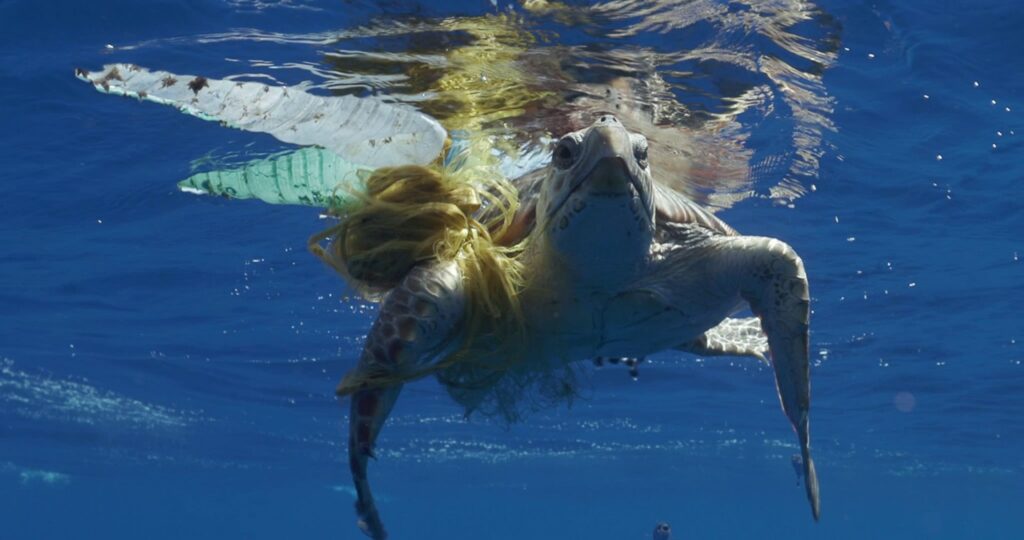
“We attached a satellite tag before she was released on 11 August, which allowed us to track her epic journey of 6,000 km through the Western Mediterranean and the waters off West Africa. This turtle surprised us by crossing the Strait of Gibraltar, a challenging area because of its strong currents and high density of marine traffic, which could result in a high risk of boat collision”, said David March of the Universities of Exeter and Barcelona who was involved in this tracking.
By February 2021, the Thunderbird was off the coast of Senegal however, the signal from its tag became erratic with the final position on 17th March 2021, showing the turtle on land, near the port of Dakar. After checking that the battery and tag sensor were working correctly, the last position was referenced with data from the Global Fishing Watch portal, that indicated this position was near a fishing ground used by trawlers, possibly indicating that it was unintentionally caught by a fishing vessel.
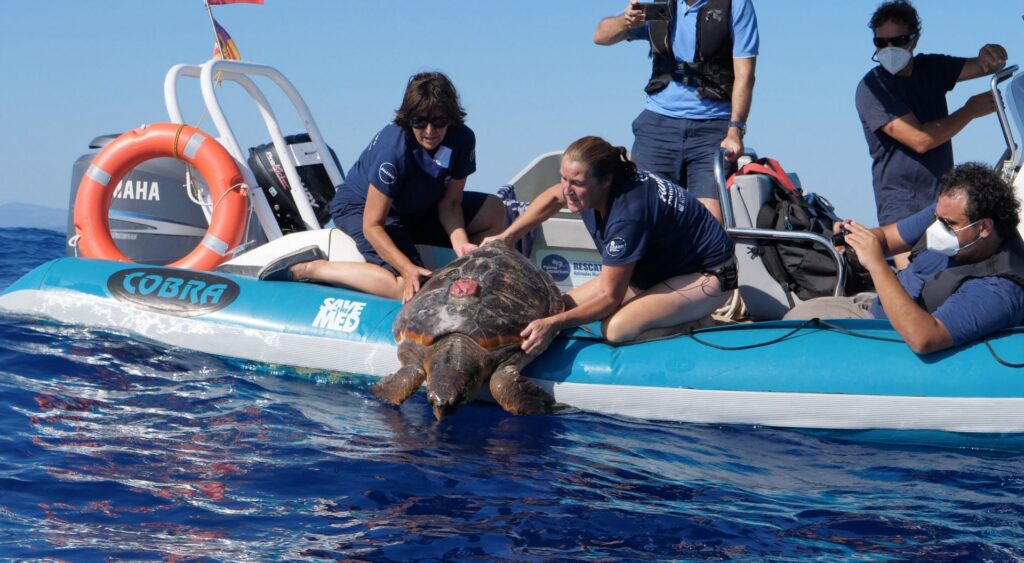
“We found out that the last dive recorded by the satellite tag was near a fishing ground used by trawlers. All this suggests the turtle was bycaught (caught by accident) by a fishing vessel and taken back to the port. We don´t know if Thunderbird was released alive after capture, or died as consequence of the bycatch event”, adds March.
Currently, researchers are using satellite data and working with partners in Senegal to find the boat that caught the turtle, in the hope of finding out more information about the fate of Thunderbird
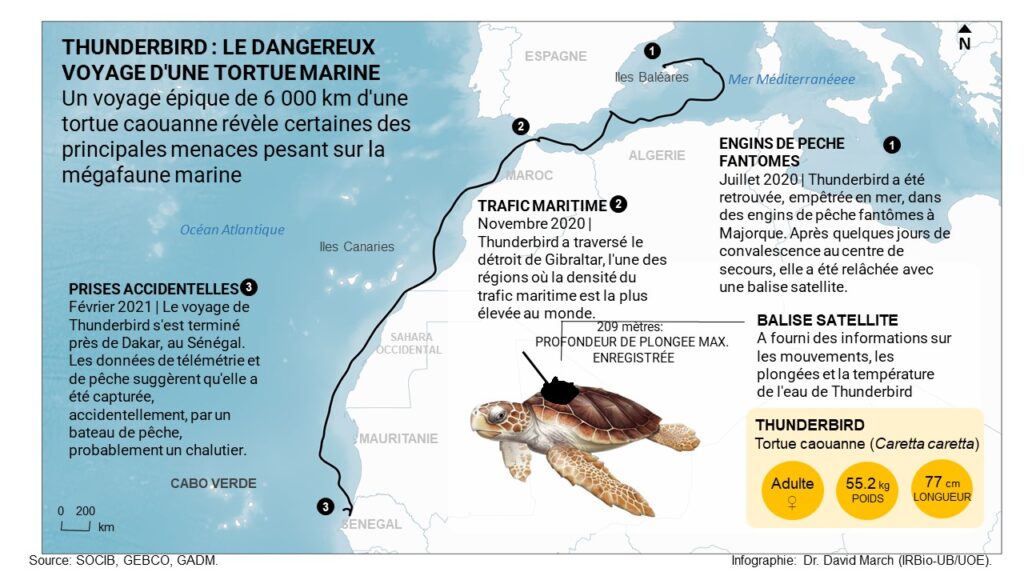
West Africa is one of the world’s richest fishing grounds, with the region providing one fifth of the world global fish catch, and inevitably numerous bycatch incidences. Since 2017, BirdLife International in collaboration with national and international partners aimed at establishing an operational framework for reducing the incidental catches of sea turtles in West Africa’s industrial fisheries. The project funded by the MAVA Foundation has five key pillars namely strengthening research and scientific capacity, strengthening observer programmes, advocacy for legislation & mitigation measures, awareness and public outreach, in addition to sustainability and partnerships.
“There is a lot of unregulated and/or unsustainable fishing activities off West Africa, and we are working with local partners and fishing companies to adapt fishing gear and methods to minimise bycatch of sea turtles,” noted Ahmed Diame, Bycatch Project Manager, at BirdLife Africa.
“We are also identifying the main fishing hotspots – such as the area where Thunderbird was caught. With the information collected by observers onboard industrial fishing vessels and the sea turtle tracking data, we will be able to identify the key risk areas and periods for species bycaught during fishing activities’’, adds Diame.
Understanding the spatial and temporal impacts of different types of fisheries on marine turtle populations is crucial in order to implement sustainable conservation strategies. Consequently, the project has enabled a better understanding of the scale of bycatch occurrences in West Africa.
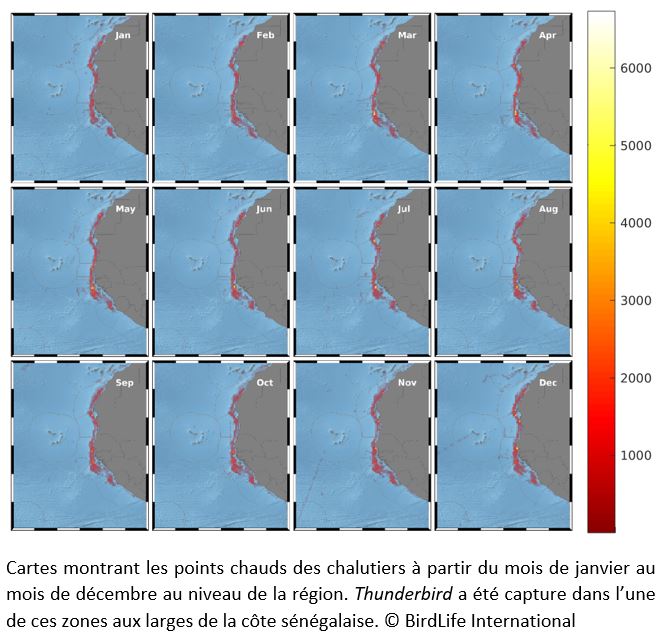
A key component of the project is capacity building through carrying out trainings for fisheries observers. These trainings provide to observers with skills on sea turtle identification, sea turtle handling best practices, sea turtle bycatch mitigation techniques, and bycatch data collection protocols. From May 31st to June 04th 2021, the team held a regional training in Somone, Senegal, where 13 fisheries observers and bycatch data managers from Mauritania, Gambia, Cabo Verde, Guinea, Guinea Bissau, and Sierra Leone participated. The training was part of the efforts to establish a network of national trainers in the different involved countries.
“These conservation interventions will be instrumental in helping conserve sea turtles. As we mark World Sea Turtle Day, we must act with speed to save these majestic creatures which are threatened,” concludes Diame.
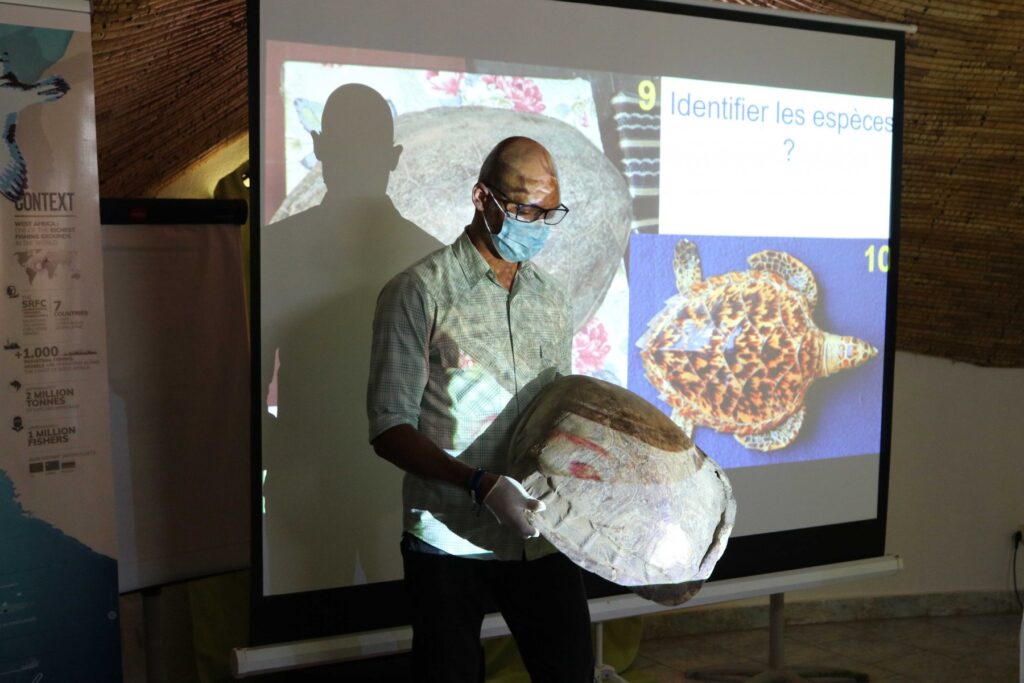
Thunderbird a été marqué dans le cadre du programme, « Tortues océanographiques », un programme conjoint du Système d’observation et de prévision côtière des îles Baléares (SOCIB) , Alnitak, Fondation Palma Aquarium et de l’Université d’Exeter, avec le soutien de la NOAA NMFS. Thunderbird was tagged within the framework of “Oceanographic turtles”, a joint programme by the Balearic Islands Coastal Observing and Forecasting System (SOCIB), Alnitak, Palma Aquarium Foundation and the University of Exeter, with the support of NOAA NMFS. Find out more about Thunderbird’s journey here
Latest news from Africa
Stay up to date
Sign up to receive the latest bird conservation news. You’ll also receive updates about our projects, science and other ways to get involved including fundraising.
Thank you for your support, we are committed to protecting your personal information and privacy. For more information on how we use your data, please see our Privacy Policy. You can unsubscribe from emails at any time by using the link in the footer of any email from us.
